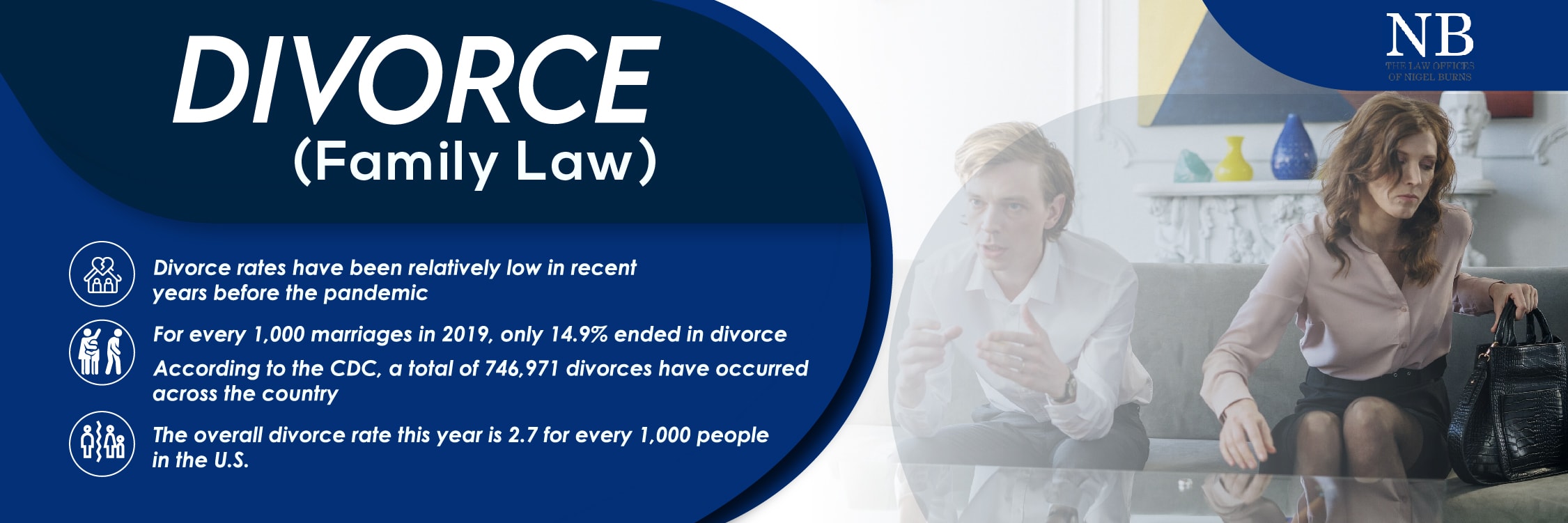Are You in the Middle of Divorce and Have Trouble Dividing Your Assets and Debt? Call Us Today

Dividing property is by far the most stressful part of a divorce. Most married couples don’t sign prenuptial agreements or agree on how to split their belongings in case they divorce, since they obviously don’t anticipate a divorce when getting married. If all goes south, a family law attorney in Ontario is your best bet to dividing the property evenly.
However, before hiring a lawyer, you must be wondering what the process entails, and if you have any chances of getting a portion of the property. Here are frequently asked questions regarding property and debt division during divorce.
What is Community Property?
Community earnings include the total revenue acquired during your marriage and all the things acquired with the earnings. Additionally, all the debts incurred during your union gets considered property debt. However, this doesn’t apply when creditors specifically look to the separate property of one of the spouses for payment.
What Is Separate Property?
This includes inheritances and gifts given explicitly to one of the spouses, and individual injury awards allocated to one spouse. It also involves the proceeds showing the pensioner’s entitlement to receive any of the things mentioned above before marriage.
If you acquired assets through separate means, then these remain as your independent property. If you have a business, it’ll only be considered separate property if you founded it before getting married.
When Is a Property Considered a Separate Property?
A portion of the company gets considered as community property if its value increased during the marriage. This can also happen if both the couples worked on it. When a separate property gets mingled up with community property while in marriage, it ends up becoming community property. This happens either entirely or partially, depending on the situation. In such cases, getting the help of a legal professional can come in handy.
What If you Bought the Property Using Both Separate and Community Funds?
In such instances, the property becomes partly community and partly separate, as long as the spouse proves the acquisition of the property by individual funds. Generally, community property mixed with particular property becomes community property.
Who Gets to Stay in The House After A Divorce?
When children get involved, the spouse who spends most of the time with them stays in the marital home. Additionally, the parent who provides the kids primary care can also remain in the house. In instances where you lack children, and the house belongs to only one of the spouses, that individual has legal ownership of the premises.
What Happens If Both Spouses Own the House?
However, the situation gets tricky if both of you collectively contributed to purchasing the house, but you don’t have children. Here, neither of you has legal rights to kick out the other. You can only request the other individual to leave the house.
Furthermore, when you both own the house, you can only kick your spouse out when he/she commits domestic violence and gets a restraining order from a judge. If your spouse happens to change the locks or prevents you in any way from accessing the house, you might call the police. The police can direct your partner to let you in.

What Happens If Both Parties Fail to Reach an Agreement?
In the case where you and your spouse fail to come into an understanding, the court can help in the decision-making during divorce proceedings. You can also achieve this if you seek a temporary order concerning the issue from a divorce dispute attorney in Ontario.
Note, whichever legal actions you take, never claim the occurrence of domestic violence to gain ownership of the house. Once an attorney realizes this, you will end up vacating the premises. Additionally, the professionalism of the relationship may be jeopardized regarding future proceedings. Nonetheless, if you file for divorce and believe you suffer domestic violence, seeking legal assistance can sort you out.
How do Debts and Property Get Divided During Divorce?
In some cases, couples can decide on dividing their debt and property without involving a neutral third party. However, if this fails, you can always submit your issue to the court through a lawyer that is well-versed in managing property and debt cases pertaining to divorce. Through this channel, the state law rules will apply in dividing assets.
Courts usually divide property using two basic schemes:
- The community property
- The equitable distribution
The same principles also apply to the division of debts.
What Happens in The Case of a Community Property State?
In places such as Arizona, Texas, Nevada, Washington, and Puerto Rico, all the assets of a married individual get classified as community property.
As earlier mentioned, an asset qualifies as a community property only when the property legally belongs to both the spouses. During a divorce, the property gets equally divided between the couples, while each of them keeps the individual property.
What is Equitable Distribution?
Equitable distribution majorly involves the division of marital property in the court of law. This usually happens through the help of a tangible and intangible asset lawyer. In all the other states, earnings and assets accumulated while both parties were still married get relatively divided. However, this doesn’t necessarily imply equal distribution.
What Are the Factors Considered During Equitable Distribution?
During the proceedings of your case, as your legal counsel reviews the fairness of the split, they put into consideration a series of factors such as:
- Each couple’s income, property, and debt
- Both couples’ mental and physical health
- Tax consequences concerning the property division
- Each couples’ age and how long the marriage lasted
- Which parent has custody and needs to keep the child in their childhood home
Note, during marital property division; the court doesn’t have obligations to consider child support and alimony payments. Either way, reaching out to the legal counsel always helps both parties in one way or the other. If a spouse gets awarded more assets, it comes with more debt obligations for that individual.
Rely on The Experts
Property division doesn’t necessarily imply a physical division. Instead, both parties may receive a percentage of the total estimate of the property. Following the legal path ensures each couple gets assets and debts that are based on the independent contributions made toward their share.
Are you in need of detailed and practical assistance to divide debt and property during a divorce? Contact us today, and we'll assign you with an experienced attorney on our team, at Zimmerman Law LLP.
